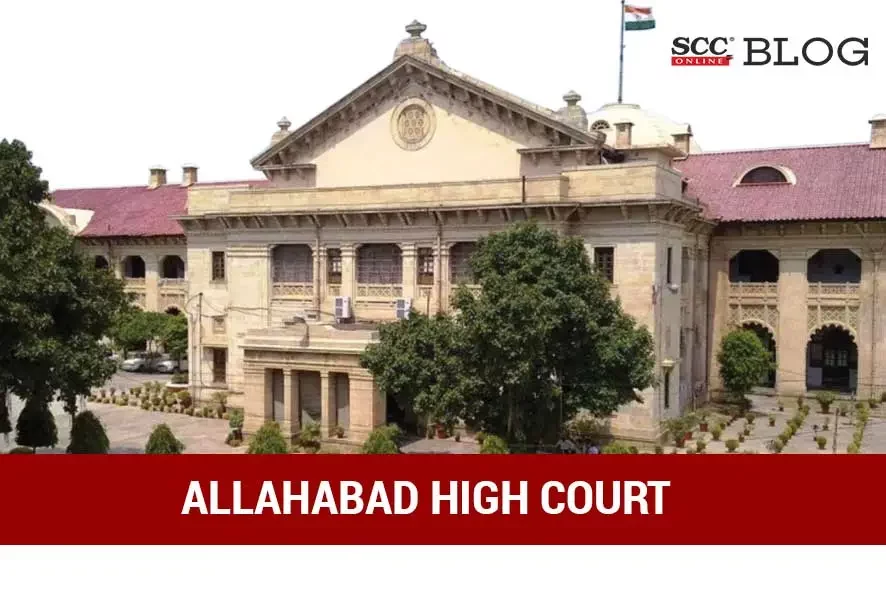Allahabad High Court: In a matter under Article 227 of the Constitution of India, against the order dated 03-03-2023 passed by District Judge and order dated 17-05-2022 passed by the Civil Judge declining the Application for rejection of plaint under Order 7 Rule 11 of the Code of Civil Procedure, 1908 (‘CPC’), Jayant Banerji, J. while upholding the impugned orders, said that the respondent in the suit for injunction is not seeking correction of the boundaries but has sought a decree of permanent injunction. If the plot of the respondent is not demarcated, then she would not be entitled to injunction. However, it is a completely different thing to state that in the suit for injunction, the plaint is liable to be rejected on that ground. Thus, the Court found no error or illegality in the impugned orders.
The petitioners contended that proceedings under Section 24 of the UP Revenue Code, 2006, (‘Code, 2006’) were instituted by them against the Kanpur Development Authority, Public Works Department and Vishwakarma Nagar Sahkari Awas Samiti in the year 2016, seeking demarcation of plot situated in Village Daheli, Sujanpur, and for granting possession. He stated that the application for demarcation was rejected by the Sub-Divisional Officer and the appeal filed before the Commissioner was dismissed. Thereafter, the petitioners filed a revision before the Board of Revenue, which is pending and in which an interim order directing the parties to maintain the status quo was passed. Thereafter, the respondent filed a suit against the petitioners seeking a decree of permanent injunction in respect of plot.
The petitioner contended that in view of the pendency of the revision before the Board of Revenue that arose out of the proceedings under Section 24 of Code, 2006 and given the bar operating in view of the provisions of Section
The Court said that application 63C is an application under Section 151, Section 10 and under Order 7 Rule 11 CPC. After perusing the said application, the Court noted that the first ground taken was that the respondent had no cause of action. The second ground was that the suit was barred under Section 10 of the CPC, as with regard to the same subject matter and between the same parties the matter is pending before the Board of Revenue. The third ground was that the suit is an abuse of the process of law. The fourth ground is that the suit is barred by non-rejoinder of parties and the fifth ground is that the plaintiff ought to pay the ad valorem court fee in the valuation of the property in issue.
The Court noted that Section 24 of the Code, 2006, provides for the Sub-Divisional Officer to decide by summary inquiry any dispute regarding boundaries on the basis of the existing survey maps or, where the same is not possible, in accordance with the provisions of the Uttar Pradesh Consolidation of Holdings Act, 1953, on the basis of such maps. But if this is not possible, boundaries shall be fixed on the basis of actual possession. The Sub-Divisional Officer is also empowered to put into possession a party who has been wrongly dispossessed and a period of three months is prescribed for conclusion of the proceedings for demarcation.
The Court further noted that in Section 24(4), an appeal has been provided before the Commissioner. Section 206 of the
It further noted that in the third Schedule, the Sub-Divisional Officer is the Court or officer of original jurisdiction who would decide any application under Section 24. The petitioners have instituted proceedings against three parties and specifically in respect of a plot. The respondent is not a party therein. However, it has been pointed out by the petitioner that the respondent had filed a restoration application before the Sub-Divisional Officer in the aforesaid proceedings under Section 24.
The Court said that the proceedings under Section 24 of the Code, 2006, are summary in nature while an injunction suit filed by the respondent is a regular suit.
After perusing the plaint, the Trial Court order dated 17-5-2022 and the judgment and order of the Revisional Court dated 03-03-2023, said that while dismissing the application filed under Order 7 Rule 11 CPC read with Section 10 CPC, the courts have noticed that the plot in dispute are different and therefore, it would not be barred under Section 10 CPC. It was further found that the plaint is not liable to be rejected under Order 7 Rule 11 CPC.
Further, it said that the Revisional Court had noticed that the respondent in the suit for injunction is not seeking correction of the boundaries but has sought a decree of permanent injunction. It was also observed that given the nature of the suits filed between the parties, the distinction in plot number concerned, the suit would also not be barred under Section 10 of the CPC. It was stated that the relief sought in the proceedings under Section 24 of the Code, 2006, and the relief sought in the plaint filed by the respondent were different.
The Court mentioned that if the plot of the respondent is not demarcated, then she would not be entitled to injunction. However, it is a completely different thing to state that in the suit for injunction, the plaint is liable to be rejected on that ground. Thus, the Court found no error or illegality in the impugned orders.
[Pankaj Srivastava v Malti Devi, 2023 SCC OnLine All 2155, Order dated 28-10-2023]
Advocates who appeared in this case :
Counsel for Petitioner :- Advocate Ram M. Kaushik, Advocate Abhishek Ghosh, Advocate Ashish Agrawal, Umesh Tripathi
Counsel for Respondent :- Chief Standing Counsel Arun Kumar








It is very helpful